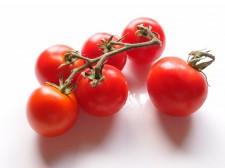The debate over whether organic is better came to a head recently when a study published in the Annals of Internal Medicine found that there are no nutritional or safety differences between foods produced according to organic standards and those cultivated by conventional methods.
 Previous research has demonstrated the same results, so when ACSH scientific advisor Dr. Marvin Schissel came upon an article in USAA Magazine a magazine published by the insurance company for U.S. Army veterans implying that organic products are superior, he felt compelled to bring this misinformation to the attention of General Josue Robles, the company s president and CEO. His letter is re-printed below:
Previous research has demonstrated the same results, so when ACSH scientific advisor Dr. Marvin Schissel came upon an article in USAA Magazine a magazine published by the insurance company for U.S. Army veterans implying that organic products are superior, he felt compelled to bring this misinformation to the attention of General Josue Robles, the company s president and CEO. His letter is re-printed below:
As a veteran of the Army Dental Corps in Korea in the middle 1950 s I have been using your excellent services for many years; USAA has also served my children well. I ve always considered USAA a reliable source of sound information. But I was taken aback at an article I just saw in the Summer USAA magazine that provided pseudoscientific nutritional advice and was a disservice to the membership.
This article strongly recommended buying and using organic fruit and vegetables, implying that organic produce is healthier and safer than traditional produce. You state this information comes from the so-called Environmental Working Group based on review of the USDA s pesticide data. But the Environmental Working Group has often been criticized for unreliable and unscientific stances on many issues, including this one.
There has never been valid evidence to support the assertion that chemicals appropriately used in traditional agriculture pose any threat to human health. A basic principle of science is only the dose makes the poison. Every substance, even water, can be considered toxic at high enough doses, but agricultural chemicals are used in doses well below levels toxic to humans.
At very high doses traditional fertilizers and pesticides are indeed toxic, but so is the manure used in organic agriculture.
Your unfortunate article is likely to lead many of your members to throw away money unnecessarily. I hope you will print a corrective item it the next issue.


